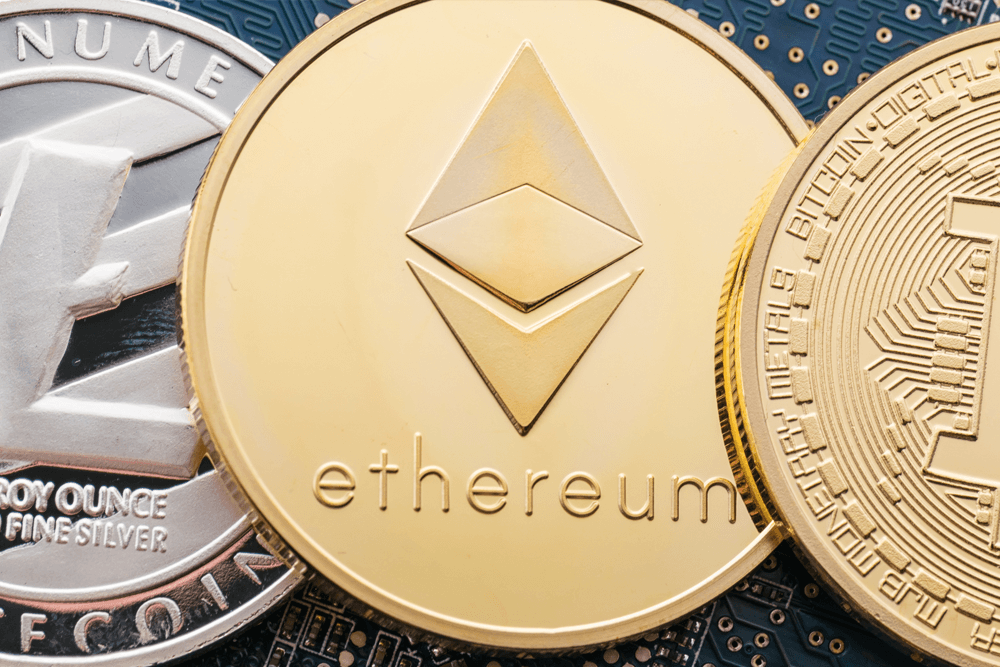Blockchain: A Very Short History Of Ethereum Everyone Should Read
2 July 2021
Even those who are not familiar with blockchain are likely to have heard about Bitcoin, the cryptocurrency and payment system that uses the technology. Another platform called Ethereum, that also uses blockchain, is predicted by some experts to overtake Bitcoin this year.

What is Ethereum?
Ethereum is an open-source public service that uses blockchain technology to facilitate smart contracts and cryptocurrency trading securely without a third party. There are two accounts available through Ethereum: externally owned accounts (controlled by private keys influenced by human users) and contract accounts. Ethereum allows developers to deploy all kinds of decentralised apps. Even though Bitcoin remains the most popular cryptocurrency, it’s Ethereum’s aggressive growth that has many speculating it will soon overtake Bitcoin in usage.
How is Ethereum different than Bitcoin?
While there are many similarities between Ethereum and Bitcoin, there are also significant differences. Here are a few:
- Bitcoin trades in cryptocurrency, while Ethereum offers several methods of exchange, including cryptocurrency (Ethereum’s is called Ether), smart contracts and the Ethereum Virtual Machine (EVM).
- They are based on different security protocols: Ethereum uses a “proof of stake” system as opposed the “proof of work” system used by Bitcoin.
- Bitcoin allows only public (permissionless or censor-proof) transactions to take place; Ethereum allows both permissioned and permissionless transactions.
- The average block time for Ethereum is significantly less than Bitcoin’s: 12 seconds versus 10 minutes. This translates into more block confirmations, which allows Ethereum’s miners to complete more blocks and receive more Ether.
- It is estimated that by 2021 only half of the Ether coins will be mined (a supply of more than 90 million tokens), but the majority of Bitcoins already have been mined (its supply is capped at 21 million).
- For Bitcoin, the computers (called miners) running the platform and verifying the transactions receive rewards. Basically, the first computer that solves each new block gets Bitcoins (or a fraction of one) as a reward. Ethereum does not offer block rewards and instead allows miners to take a transaction fee.
What are the advantages of Ethereum?
Proponents of Ethereum believe its main advantage over Bitcoin is that it allows individuals and companies to do much more than just transfer money between entities leading Bloomberg to write it’s “the hottest platform in the world of cryptocurrencies and blockchains” and companies such as JPMorgan Chase, Intel and Microsoft to invest in it.
History of Ethereum
Ethereum’s co-founder, Vitalik Buterin said, “I thought [those in the Bitcoin community] weren’t approaching the problem in the right way. I thought they were going after individual applications; they were trying to kind of explicitly support each [use case] in a sort of Swiss Army knife protocol.”
He envisioned a different way.
Buterin was introduced and intrigued by blockchain technology when he got involved in Bitcoin as a 17-year-old programmer in 2011 and co-founded Bitcoin Magazine. He started to imagine a platform that went beyond the financial use cases allowed by Bitcoin and released a white paper in 2013 describing what would ultimately become Ethereum using a general scripting language.
The key differentiator from Bitcoin was the platform’s ability to trade more than just cryptocurrency.
In 2014, Buterin and the other co-founders of Ethereum launched a crowdsourcing campaign where they sold participants Ether (Ethereum tokens) to get their vision off the ground and raised more than $18 million. The first live release of Ethereum known as Frontier was launched in 2015. Since then, the platform has grown rapidly and today there are hundreds of developers involved.
Ultimately, Buterin hopes Ethereum will be the solution for all use cases of blockchain that don’t have a specialised system to turn to.
Ethereum is still experiencing growing pains and suffers from some of the same issues that Bitcoin does primarily in its scalability. In 2016, $50 million in Ether was stolen by an anonymous hacker which resulted in questions about the platform’s security. This caused a split within the Ethereum community and it broke off into two blockchains: Ethereum (ETH) and Ethereum Classic (ETC).
There have been dramatic fluctuations in the price of Ether, but the Ethereum currency grew more than 13,000% in 2017. This tremendous growth is attractive to many investors, but the volatility makes other investors cautious.
It’s still a very young platform, but its potential and applications could be limitless. Ethereum’s infrastructure was enhanced over the last few years when it was challenged with security issues and since it’s less monopolistic than Bitcoin, it is more open to reform measures that might ultimately make it a superior solution to Bitcoin.
Related Articles
3 Ways Generative AI Is Making Our World A Better Place
Bored of the negative headlines around AI, and specifically generative AI? Then this article is for you.[...]
The Metaverse And Its Dark Side: Confronting The Reality Of Virtual Rape
The police in the UK are currently investigating a virtual rape in the metaverse involving a young girl under the age of 16 who[...]
Generative AI (Probably) Won’t Take Your Job. But It Will Change How You Work
When you read or listen to anything about generative AI and its impact on jobs, it's often a story of job losses.[...]
The Biggest Challenges And Pitfalls Of Data-Driven, AI-Enabled HR
Amid the rapid evolution of digital landscapes, data and AI have emerged as critical tools in human resource (HR) management[...]
The Unmissable Highlights From CES 2024
Much like its predecessors, the Consumer Electronics Show (CES) of 2024 has once again dazzled the world with a spectacle of innovation and technological marvels.[...]
5 Unexpected Ways Generative AI May Change Your Daily Life
No doubt you've seen dozens of headlines (or more) about generative AI and how tools like ChatGPT are going to transform our jobs..[...]
Sign up to Stay in Touch!
Bernard Marr is a world-renowned futurist, influencer and thought leader in the fields of business and technology, with a passion for using technology for the good of humanity.
He is a best-selling author of over 20 books, writes a regular column for Forbes and advises and coaches many of the world’s best-known organisations.
He has a combined following of 4 million people across his social media channels and newsletters and was ranked by LinkedIn as one of the top 5 business influencers in the world.
Bernard’s latest book is ‘Generative AI in Practice’.










Social Media